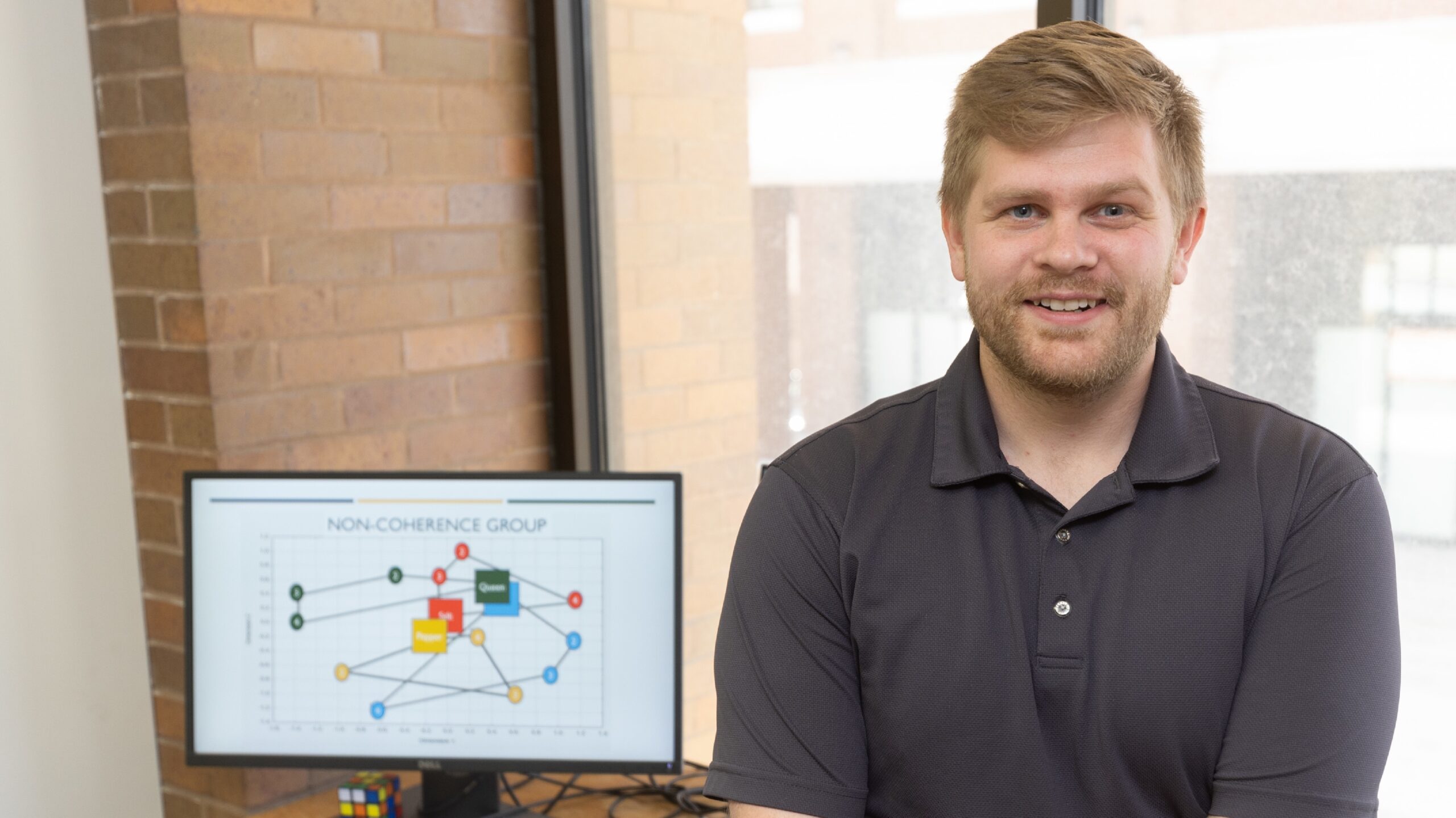Human behavior is responsible for some of the best and worst moments in history.
So, how can we use science to make sure humans act in ways that are beneficial to society and the planet? How can we influence and manipulate human behavior?
Using the Humans Understanding Behavior (HUB) research lab, Dr. Jordan Belisle, associate professor of psychology at Missouri State University, endeavors to uncover the answers to those very questions.
The answer lies in self-awareness
Belisle studies Relational Density Theory (RDT) and how it applies to human behavior.
RDT explains how language shapes our perceptions and behaviors.
Belisle has applied RDT to studies about climate change and training for children with autism spectrum disorder.
“When we look at the climate change crisis, it’s not a simple fix,” Belisle said. “We take in a constant stream of information and tend to only interact with language that connects to our existing beliefs.”
Using a survey, Belisle tried to determine if people would react to climate recommendations the same way they make decisions with money.
“It’s based off the idea that people are making a transaction with the environment,” he said.
“We’re spending the environment now, and there may be serious consequences down the road.”
The study showed a connection between delayed payments and how people respond to climate policies.
“The study helps us to predict and influence choices around climate change,” Belisle said.

